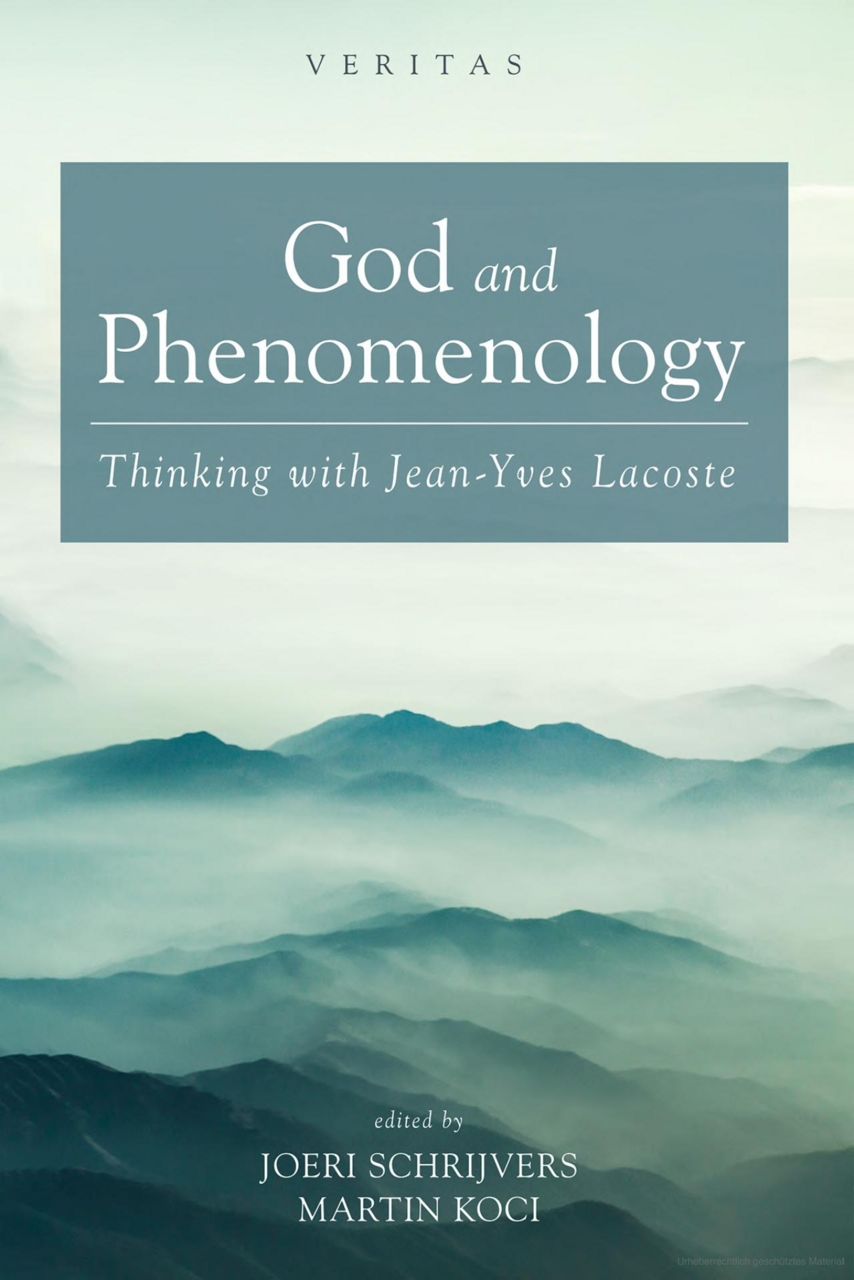God and Phenomenology. Thinking with Jean-Yves Lacoste
God and Phenomenology: Thinking with Jean-Yves Lacoste provides a starting point for scholars who seek to familiarize themselves with the work of this French phenomenologist and theologian. Thirteen international scholars comment on Lacoste's work. In conclusion the volume offers an unpublished essay by Lacoste on the topic of eschatology.
God and Phenomenology- Wipf and Stock Publishers
Praise
"While Jean-Yves Lacoste is a thinker of great erudition in the fields of both philosophy and theology, his work has received far less attention than it deserves. This is the first collection of essays on his thought, and it will no doubt lead to further ones. Although this volume is not intended as an introduction to Lacoste, anyone familiar with the interactions between the phenomenological and theological traditions will find this volume immensely helpful and will soon want to read Lacoste for themselves."
--Bruce Ellis Benson, executive director, Society for Continental Philosophy and Theology
"Jean-Yves Lacoste has blended phenomenology and theology with a special degree of subtlety, based upon his remarkable scholarly acquaintance with both. He has also further extended the legacy of the nouvelle theologie by questioning the division between theology and philosophy more radically than anyone else. These excellent essays do justice to both aspects of his enterprise and subject them to critical questioning and development. They make a vital contribution to the emerging Christian thinking of the twenty-first century."
--Catherine Pickstock, professor of divinity, University of Cambridge
"Few thinkers who truly have something to say to us are as demanding as Jean-Yves Lacoste. Martin Koci and Joeri Schrijvers have certainly understood this, for this collection, the first of its kind in English, does not pretend to be anything at all of the sort of summary that always ends in oversimplification. Instead, we are given a series of points of entry, and by some of Lacoste's most accomplished readers, that manage, each in its own way, to summon both the spirit and the concerns of his thinking. God and Phenomenology is long overdue and promises to be immensely helpful."
--Jeffrey Bloechl, associate professor of philosophy, Boston College

